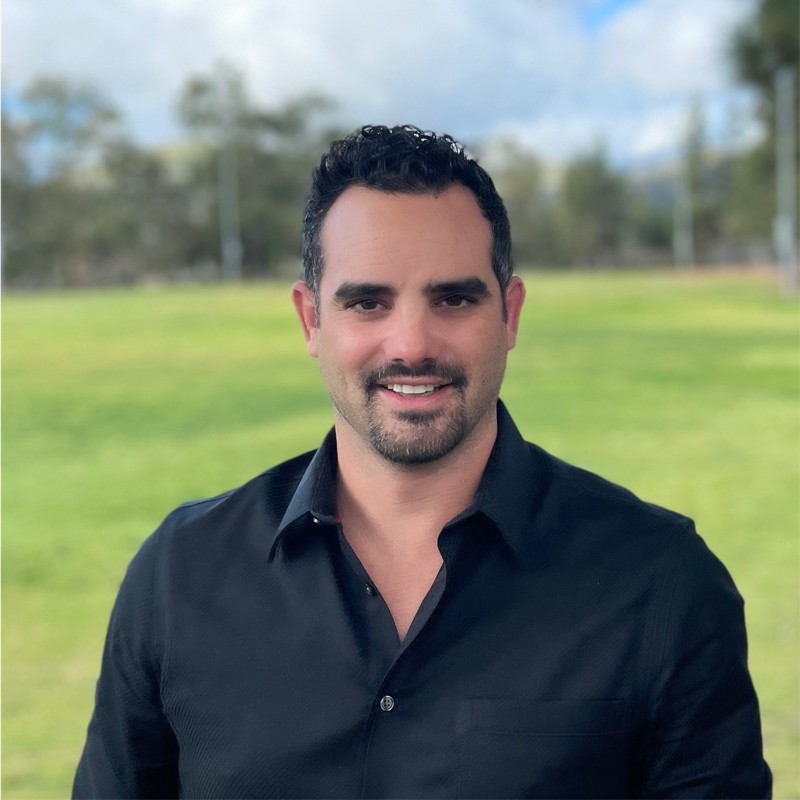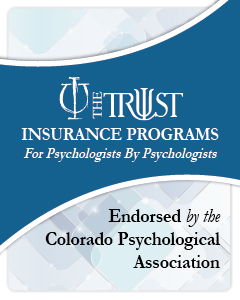2024 Spring Symposium --
Tech-Forward Psychology: Navigating the Intersection of Technology and Mental Health
Monday, April 22!
Registration is now closed.
Join us for a comprehensive day-long event featuring 6 hours of continuing education (all 6 CEs apply to PSYPACT licensure) available both in-person and virtually.
Pricing:
- $185 CPA Members
- $285 Non-Members
- $75 Student CPA Members
- $95 Student Non-Members
Agenda for the day:
- 8:30 a.m. -- Welcome
- 8:45 a.m. - 9:45 a.m.: The Influence of Media on Eating Disorders and OCD; Stephanie Lehto, PsyD, Assistant Professor, University of Colorado Anschutz School of Medicine (1 CE)
- 9:50 a.m. - 10:50 a.m.: Protecting Your Licensure in An Age of Consumers who Hide Behind Keyboards; Priscila Nogueira Barber, J.D. (1 CE)
- 11 a.m. - 12 p.m.: The Evolving Terrain of Digital Mental Health; Debbie Boeldt, PhD, Director of Research and Clinical Science, Jimini Health (1 CE)
- 12 p.m. - 12:30 p.m.: Lunch
- 12:30 p.m. - 1:30 p.m.: Screen Use in the Early Years: Strategies for Parents of Infants and Young Children; Kate K McGoldrick, PhD, Clinical Psychologist in Private Practice (1 CE)
- 1:45 p.m. - 2:45 p.m.: Helping Clients Navigate Online Dating and Avoid Burnout; Brittany Woolford, PhD, Lone Wolf Psychological Services (1 CE)
- 3 p.m. - 4 p.m.: AI in Behavioral Health - Consideration, Assessment, Strategy, and Implementation; Ross Young, CEO, Clinical Notes AI, Inc. (1 CE)
The Influence of Media on Eating Disorders and OCD
8:45 a.m. - 9:45 a.m.
Description:
This presentation will review the impact of media on Eating Disorders and Obsessive Compulsive Disorder (OCD). Media has played a role on eating disorders by promotion of thin ideal internalization with movies/television shows, fashion trends, and social media. The presenter will review the role of social media communities that promote anorexia, bulimia, and recovery. In addition, presenter will review the impact of social media on OCD highlighting the use of social media in compulsive behaviors and methods of practicing mindful social media use. Attendees will be prompted to engage in discussions of what they have experienced with client presentations throughout presentation. This presentation will also include treatment of Eating Disorders and OCD through telehealth, including benefits and barriers.
Number of CE credits offered: 1
Program level: Introductory
Learning Objectives:
- Participants will identify the impact of media on eating disorders and thin ideal internalization
- Participants will explain the role of compulsive social media use for OCD
- Participants will apply social media literacy to client sessions
Speaker: Stephanie Lehto, PsyD, Assistant Professor, University of Colorado Anschutz School of Medicine
 Stephanie Lehto, PsyD is a Licensed Clinical Psychologist in Colorado and currently is Assistant Professor at the University of Colorado Anschutz Medical Campus. Dr. Lehto is Clinical Director of Student and Resident Mental Health, Clinical Director of Faculty and Staff Mental Health, and a therapist with the OCD Program. Dr. Lehto received her PsyD from Midwestern University, Glendale, Arizona in 2017. Dr. Lehto completed her Pre-Doctoral and Post-Doctoral training with the Eating Recovery Center.
Stephanie Lehto, PsyD is a Licensed Clinical Psychologist in Colorado and currently is Assistant Professor at the University of Colorado Anschutz Medical Campus. Dr. Lehto is Clinical Director of Student and Resident Mental Health, Clinical Director of Faculty and Staff Mental Health, and a therapist with the OCD Program. Dr. Lehto received her PsyD from Midwestern University, Glendale, Arizona in 2017. Dr. Lehto completed her Pre-Doctoral and Post-Doctoral training with the Eating Recovery Center.
Protecting Your Licensure in An Age of Consumers who Hide Behind Keyboards
9:50 a.m. - 10:50 a.m.
Description:
This course is designed to present practitioners with a better sense for how trends in post-covid social behaviors have affected regulated professionals. We will review research on how post-void changes in routine, work, behavior, and, above all, human relationships have impacted the discreet area in which I practice: licensure complaints. We will analyze the role that texts, internet search histories, and social media interactions have impacted the judicial system and evidence in the court system and correlate current statistics we are seeing in licensure complaints and the contents thereof. Approaches that have traditionally been used to mitigate consumer dissatisfaction seem to fall short and we will discuss best practices to employ for confronting the challenges the aforementioned factors have presented. This practice and evidence-based approach to technology’s evolution and impact in these areas is intended to prepare practitioners with tools to identify, confront, and diffuse consumer concerns before they become licensure complaints; for those complaints that cannot be prevented, the same information is intended to provide documented and methodical steps to protect practitioners so that their positions are defensible under such unwelcome scrutiny. We will also discuss how to consider practicing between and across state lines with these concepts in mind.
Number of CE credits offered: 1 CE
Program level: Intermediate
Learning Objectives:
- Attendees will know how post-void changes in routine, work, behavior, and, above all, human relationships have impacted consumer complaints on licensure.
- Attendees will be able to identify the role that texts, internet search histories, and social media interactions have had on the judicial system.
- Attendees will be able to correlate current statistics in licensure complaints and the contents thereof with the post-covid behavior and contents of license grievances.
Speaker: Priscila Nogueira Barber, J.D.

Priscila is a licensed attorney practicing in Colorado and Virginia who is committed to honoring her clients through diligent, honest practice. People tend to come to attorneys for the same reason they go to doctors: something in their life is broken and they need help to fix it. Priscila strives to respect her clients and treat them with utmost consideration as she provides them with trustworthy advice and effective legal service.
The Evolving Terrain of Digital Mental Health
11 a.m. – 12 p.m.
Description:
Digital mental health extends far beyond the confines of traditional telehealth, encompassing a diverse array of technological innovations. These advancements include but are not limited to virtual reality systems, mobile applications, wearable devices, and importantly, chat-based therapy platforms. Each of these tools has been designed to support various therapeutic techniques, such as exposure therapy, cognitive skill development, behavioral activation, mindfulness practices, and peer support. One of the most significant breakthroughs in this domain is a new model of tele-therapy and chat-based care, offering continuous and immediate support. This approach bridges the gap in mental healthcare accessibility, providing an invaluable resource for those who might otherwise face barriers to traditional therapy methods. The integration of chat-based therapy into the broader spectrum of digital mental health tools signifies a pivotal shift in the way mental healthcare is delivered and experienced. This presentation will discuss the advantages and limitations of a hybrid of tele-therapy leveraging chat-based interactions. A primary focus will be on the ethical implications of utilizing such technologies in a clinical setting. This includes understanding the complexities surrounding client privacy, data security, and informed consent, especially in chat-based therapy and continuous care models.
Number of CE credits offered: 1 CE
Program level: Introductory
Learning Objectives:
- Participants will develop an awareness of the current barriers hindering access to evidence-based mental health treatments and explore how technological innovations, including chat-based therapy, can effectively address these challenges.
- Participants will gain comprehensive knowledge and learn to identify and implement various technological solutions, including chat-based therapy, within clinical settings to enhance treatment efficacy and provide ancillary support.
- Participants review ethical issues associated with the use of technological applications in mental health, including but not limited to privacy concerns, data security, and informed consent, particularly in the context of innovative tools like chat-based therapy.
- Participants will be equipped to identify and implement specific steps that providers can take to ensure the ethical use of digital mental health technology in practice. This includes developing protocols for data protection, establishing clear guidelines for client consent, and continuously evaluating the impact of these technologies on client privacy and overall well-being.
Speaker: Debbie Boeldt, PhD, Director of Research and Clinical Science, Jimini Health
 As a licensed clinical psychologist, my strong research background fuels my dedication to strength-based approaches for stress reduction and well-being. I work with clients across the lifespan, specializing in women's health. I provide continuous care through messaging-based therapy, complemented by teletherapy sessions via video or phone. My passion for evidence-based digital practices shapes a therapeutic space that encourages growth, resilience, and lasting positive transformations. I obtained my doctorate from the University of Colorado Boulder and completed an internship at the University of California San Diego / Veterans Administration program. My postdoctoral fellowship at the Scripps Translational Science Institute focused on bioethics, genomics, and digital medicine, sparking my passion for digital mental health. As Deputy Director at the National Mental Health Innovation Center (NMHIC) at the University of Colorado Anschutz Medical Campus, I led research initiatives to expedite the implementation of mental health innovations. Since joining Jimini Health, I have provided teletherapy and chat-based therapy through a continuous care model.
As a licensed clinical psychologist, my strong research background fuels my dedication to strength-based approaches for stress reduction and well-being. I work with clients across the lifespan, specializing in women's health. I provide continuous care through messaging-based therapy, complemented by teletherapy sessions via video or phone. My passion for evidence-based digital practices shapes a therapeutic space that encourages growth, resilience, and lasting positive transformations. I obtained my doctorate from the University of Colorado Boulder and completed an internship at the University of California San Diego / Veterans Administration program. My postdoctoral fellowship at the Scripps Translational Science Institute focused on bioethics, genomics, and digital medicine, sparking my passion for digital mental health. As Deputy Director at the National Mental Health Innovation Center (NMHIC) at the University of Colorado Anschutz Medical Campus, I led research initiatives to expedite the implementation of mental health innovations. Since joining Jimini Health, I have provided teletherapy and chat-based therapy through a continuous care model.
Screen Use in the Early Years: Strategies for Parents of Infants and Young Children
12:30 p.m. - 1:30 p.m.
Description:
The use of screens, both televisions and mobil devices, has pervaded all age groups, including infants, young children and their parents. Screen use by infants/young children has been shown to have effects on their language development and executive functioning. Secure attachment to caregivers facilitates cognitive skills across domains and throughout childhood, yet the quality of caregiver/young child attachment has been negatively correlated with screen use in caregivers. Psychologists can educate and support the parents of infants and young children, and their medical and educational providers, with concrete strategies to decrease or minimize the harmful effects of screen use.
Number of CE credits offered: 1
Program level: Intermediate
Learning Objectives:
- Describe the negative outcomes of high screen use on young children (0-5).
- Review role of attachment on child development, particularly emotional regulation and executive functioning.
- Explain connection between parents use of screens and young child attachment.
- List three concrete strategies to reduce parent and young child screen use.
Speaker: Kate K McGoldrick, PhD, Clinical Psychologist in Private Practice

Dr. McGoldrick received her BA from Kenyon College in 1992 and PhD in clinical psychology from Temple University in 1999. She completed an internship at The University of Texas Health Science Center, a fellowship in Behavioral Medicine at Rush Presbyterian/Cook County Hospital, and the Irving Harris Fellowship in Child Development and Infant Mental Health. Dr. McGoldrick worked in research at the Kempe Center on maltreated infants in foster care before starting her private practice in 2004. In private practice, Dr. McGoldrick works with families of infants and young children as well as adults. Dr. McGoldrick consults to area preschools.
Helping Clients Navigate Online Dating and Avoid Burnout
1:45 p.m. - 2:45 p.m.
Description:
In today’s world, technology seems to be a connecting thread woven into the changes in courtship practices. In 1995 Match.com, was launched, followed closely by eHarmony in 2000, PerfectMatch in 2002, and Chemistry.com in 2005. A survey conducted in 2004 found that 38% of couples met through work, 34% met through family/friends, 13% met at social gatherings and 3% met their partner through online dating (Madden & Lenhart, 2006). Later studies report much higher rates of online relationship formation. For example, 22% of singles met a partner online between 2007 and 2009 (Rosenfeld &Thomas, 2012) and 33% of couples married between 2005 and 2012 met online (Cacioppo et al., 2013), and a study conducted by the Pew Research Center (2022) found that of couples in a committed relationship under the age of 30, 20% online. Overall, dating websites and applications have drastically increased the number of potential partners that are accessible (Biever, 2006) and created a fast, efficient, and successful way to look for romantic partners (Epstein, 2007). The dating landscape has drastically changed over the last 30 years and online dating reached its peak during the pandemic (Portolan, 2023). While there is less stigma around online dating, there is a growing amount of discontent with using this platform. Many clients are coming into therapy now specifically due to issues with online dating. These issues range from dating burnout, rejections sensitivity, and an overall sense of loneliness and hopelessness towards relationships. Since there has been a steep increase in utilizing online dating this has left many therapists with little personal experience and hardly, if any, clinical training in how to help clients navigate online dating in a healthy way. This presentation will lead through the basics of how the top online dating sites function, how to guide clients to create a successful profiles that align with their dating goals and values, and helpful guardrails for clients that can help prevent burnout, choice overload, swiping dopamine addiction.
Number of CE credits offered: 1 CE
Program level: Introductory
Learning Objectives:
- Understanding the prevalence and importance of online dating in clients relational lives
- Common issues clients experience with online dating
- How some common issues vary based on geographical locations clients are in
- How to support client's in navigating burnout and rejection while utilizing this dating tool
- Trends and new avenues for modern dating
Speaker: Brittany Woolford, PhD, Lone Wolf Psychological Services
 Dr. Brittany Woolford received her Doctorate of Philosophy in Counseling Psychology from the University of North Texas. In this program she was a part of the couples and family specialty track and was a member of the Family Attachment research lab. She completed her master thesis on adolescent’s social media use and mental wellbeing and her doctoral dissertation on online dating, attachment, and relationship satisfaction. After completing her training Dr. Woolford settled in Colorado over four years ago and is now the owner of Lone Wolf Psychological Services, a group practice focusing on dating, relationships, and relational trauma. In connection with her group practice, she is a co-founder of Authentic Connections Consortium (ACC). This consortium is a training site for doctoral level students and post-doctoral professionals. ACC focuses on training students and pre-licensed professionals in couples therapy, dating, sex therapy, and relational trauma. In addition to her clinical work she is an adjunct lecture for The University of Denver's Graduate School of Professional Psychology and Morgridge College of Education teaching the Couple's Therapy elective course.
Dr. Brittany Woolford received her Doctorate of Philosophy in Counseling Psychology from the University of North Texas. In this program she was a part of the couples and family specialty track and was a member of the Family Attachment research lab. She completed her master thesis on adolescent’s social media use and mental wellbeing and her doctoral dissertation on online dating, attachment, and relationship satisfaction. After completing her training Dr. Woolford settled in Colorado over four years ago and is now the owner of Lone Wolf Psychological Services, a group practice focusing on dating, relationships, and relational trauma. In connection with her group practice, she is a co-founder of Authentic Connections Consortium (ACC). This consortium is a training site for doctoral level students and post-doctoral professionals. ACC focuses on training students and pre-licensed professionals in couples therapy, dating, sex therapy, and relational trauma. In addition to her clinical work she is an adjunct lecture for The University of Denver's Graduate School of Professional Psychology and Morgridge College of Education teaching the Couple's Therapy elective course.
AI in Behavioral Health - Consideration, Assessment, Strategy, and Implementation
3 p.m. - 4 p.m.
Description:
In an era where technology intersects with mental health care, my presentation explores the dynamic role of Artificial Intelligence in Behavioral Health. Aimed at clinicians and practices navigating technology in behavioral health, this presentation provides a roadmap for integrating AI into behavioral health practices, with a focus on practical strategies, protection, and ethical considerations.Key Areas of Coverage:1. Understanding AI in General and in Behavioral Health: How does AI work. Stigmas and positives. An overview of current AI applications in behavioral health, discussing both potential benefits and challenges. I’ll also address ethical concerns such as privacy, security, and client/patient consent.2. Strategic Assessment: I’ll introduce a vendor assessment workbook for download via QR code, guiding participants through the critical process of evaluating AI tools and vendors. This includes assessing AI solutions for compatibility with clinical needs, technical infrastructure, compliance with healthcare regulations, and alignment with organizational needs.3. Developing an AI Strategy: A step-by-step approach to formulating an AI strategy in behavioral health settings. I’ll cover how to align AI initiatives with the broader goals of the organization, budgeting, and creating a phased implementation plan.4. Implementation and Outcomes: Focusing on practical implementation, this section includes a discussion on staff enablement and integrating AI tools into existing workflows. Participants will also receive a section in the workbook to help them define and measure success metrics, ensuring that AI deployment is aligned with the business goals of their behavioral health organization.5. Real world example: I will provide an example of an AI based documentation tool implemented into a behavioral practice and how it improved their business; including a reduction to clinician burnout, increased revenue, and employee satisfaction.6. AI in the future: We conclude with a forward-looking perspective on the future of AI in behavioral health, discussing emerging trends, ongoing research, and how AI will further transform mental health care.Your members will leave with a deeper understanding of AI's role in behavioral health, equipped with practical tools and strategies to assess, strategize, and implement AI solutions effectively within their organizations.
Number of CE credits offered: 1 CE
Program level: Introductory
Learning Objectives:
- Understanding AI in General and Behavioral Health Contexts: Learners will be able to articulate the foundational concepts of artificial intelligence (AI) and its applications within the field of behavioral health.
- Assessing and Evaluating AI Tools and Vendors: Learners will demonstrate the ability to critically assess and evaluate AI tools and vendors, focusing on relevance, efficacy, and ethical considerations in the context of behavioral health.
- Developing a Strategy for AI Integration in Practice: Learners will acquire the skills to develop comprehensive strategies for the integration of AI technologies into their behavioral health practice, considering both clinical and administrative implications.
- Implementing AI in Operational Processes: Learners will learn to implement AI technologies into existing operational processes of their practice, ensuring seamless integration, staff training, and evaluation of impact on service delivery.
Speaker: Ross Young, CEO, Clinical Notes AI, Inc.
 Ross Young is an esteemed leader in healthcare technology, currently spearheading innovation as the CEO of Clinical Notes AI, based in San Diego, CA. They serve multiple behavioral health clinics, school district mental health departments, and other healthcare institutions nationwide. Prior to this, Ross played a pivotal role at Qoria, an AI child wellness organization renowned for its groundbreaking work for school mental health departments in identifying early signs of suicide, depression, and school violence. At Clinical Notes AI, he continues his mission to transform healthcare through technology, focusing on an AI-driven platform that streamlines clinical documentation. This revolutionary tool significantly reduces the administrative load on clinicians, directly combating clinician burnout, and streamlining the reimbursement process. Ross's extensive experience in leveraging AI for both mental health and administrative efficiency positions him uniquely in the field, making him a key contributor to the evolution of healthcare technology.
Ross Young is an esteemed leader in healthcare technology, currently spearheading innovation as the CEO of Clinical Notes AI, based in San Diego, CA. They serve multiple behavioral health clinics, school district mental health departments, and other healthcare institutions nationwide. Prior to this, Ross played a pivotal role at Qoria, an AI child wellness organization renowned for its groundbreaking work for school mental health departments in identifying early signs of suicide, depression, and school violence. At Clinical Notes AI, he continues his mission to transform healthcare through technology, focusing on an AI-driven platform that streamlines clinical documentation. This revolutionary tool significantly reduces the administrative load on clinicians, directly combating clinician burnout, and streamlining the reimbursement process. Ross's extensive experience in leveraging AI for both mental health and administrative efficiency positions him uniquely in the field, making him a key contributor to the evolution of healthcare technology.

Thank You To Our Sponsors!
Venue Sponsor:

Event Sponsor:


 Prev Month
Prev Month View Month
View Month Search
Search Go to Month
Go to Month Next Month
Next Month

 As a licensed clinical psychologist, my strong research background fuels my dedication to strength-based approaches for stress reduction and well-being. I work with clients across the lifespan, specializing in women's health. I provide continuous care through messaging-based therapy, complemented by teletherapy sessions via video or phone. My passion for evidence-based digital practices shapes a therapeutic space that encourages growth, resilience, and lasting positive transformations. I obtained my doctorate from the University of Colorado Boulder and completed an internship at the University of California San Diego / Veterans Administration program. My postdoctoral fellowship at the Scripps Translational Science Institute focused on bioethics, genomics, and digital medicine, sparking my passion for digital mental health. As Deputy Director at the National Mental Health Innovation Center (NMHIC) at the University of Colorado Anschutz Medical Campus, I led research initiatives to expedite the implementation of mental health innovations. Since joining Jimini Health, I have provided teletherapy and chat-based therapy through a continuous care model.
As a licensed clinical psychologist, my strong research background fuels my dedication to strength-based approaches for stress reduction and well-being. I work with clients across the lifespan, specializing in women's health. I provide continuous care through messaging-based therapy, complemented by teletherapy sessions via video or phone. My passion for evidence-based digital practices shapes a therapeutic space that encourages growth, resilience, and lasting positive transformations. I obtained my doctorate from the University of Colorado Boulder and completed an internship at the University of California San Diego / Veterans Administration program. My postdoctoral fellowship at the Scripps Translational Science Institute focused on bioethics, genomics, and digital medicine, sparking my passion for digital mental health. As Deputy Director at the National Mental Health Innovation Center (NMHIC) at the University of Colorado Anschutz Medical Campus, I led research initiatives to expedite the implementation of mental health innovations. Since joining Jimini Health, I have provided teletherapy and chat-based therapy through a continuous care model.
 Dr. Brittany Woolford received her Doctorate of Philosophy in Counseling Psychology from the University of North Texas. In this program she was a part of the couples and family specialty track and was a member of the Family Attachment research lab. She completed her master thesis on adolescent’s social media use and mental wellbeing and her doctoral dissertation on online dating, attachment, and relationship satisfaction. After completing her training Dr. Woolford settled in Colorado over four years ago and is now the owner of Lone Wolf Psychological Services, a group practice focusing on dating, relationships, and relational trauma. In connection with her group practice, she is a co-founder of Authentic Connections Consortium (ACC). This consortium is a training site for doctoral level students and post-doctoral professionals. ACC focuses on training students and pre-licensed professionals in couples therapy, dating, sex therapy, and relational trauma. In addition to her clinical work she is an adjunct lecture for The University of Denver's Graduate School of Professional Psychology and Morgridge College of Education teaching the Couple's Therapy elective course.
Dr. Brittany Woolford received her Doctorate of Philosophy in Counseling Psychology from the University of North Texas. In this program she was a part of the couples and family specialty track and was a member of the Family Attachment research lab. She completed her master thesis on adolescent’s social media use and mental wellbeing and her doctoral dissertation on online dating, attachment, and relationship satisfaction. After completing her training Dr. Woolford settled in Colorado over four years ago and is now the owner of Lone Wolf Psychological Services, a group practice focusing on dating, relationships, and relational trauma. In connection with her group practice, she is a co-founder of Authentic Connections Consortium (ACC). This consortium is a training site for doctoral level students and post-doctoral professionals. ACC focuses on training students and pre-licensed professionals in couples therapy, dating, sex therapy, and relational trauma. In addition to her clinical work she is an adjunct lecture for The University of Denver's Graduate School of Professional Psychology and Morgridge College of Education teaching the Couple's Therapy elective course. Ross Young is an esteemed leader in healthcare technology, currently spearheading innovation as the CEO of Clinical Notes AI, based in San Diego, CA. They serve multiple behavioral health clinics, school district mental health departments, and other healthcare institutions nationwide. Prior to this, Ross played a pivotal role at Qoria, an AI child wellness organization renowned for its groundbreaking work for school mental health departments in identifying early signs of suicide, depression, and school violence. At Clinical Notes AI, he continues his mission to transform healthcare through technology, focusing on an AI-driven platform that streamlines clinical documentation. This revolutionary tool significantly reduces the administrative load on clinicians, directly combating clinician burnout, and streamlining the reimbursement process. Ross's extensive experience in leveraging AI for both mental health and administrative efficiency positions him uniquely in the field, making him a key contributor to the evolution of healthcare technology.
Ross Young is an esteemed leader in healthcare technology, currently spearheading innovation as the CEO of Clinical Notes AI, based in San Diego, CA. They serve multiple behavioral health clinics, school district mental health departments, and other healthcare institutions nationwide. Prior to this, Ross played a pivotal role at Qoria, an AI child wellness organization renowned for its groundbreaking work for school mental health departments in identifying early signs of suicide, depression, and school violence. At Clinical Notes AI, he continues his mission to transform healthcare through technology, focusing on an AI-driven platform that streamlines clinical documentation. This revolutionary tool significantly reduces the administrative load on clinicians, directly combating clinician burnout, and streamlining the reimbursement process. Ross's extensive experience in leveraging AI for both mental health and administrative efficiency positions him uniquely in the field, making him a key contributor to the evolution of healthcare technology.


 Export Event
Export Event 